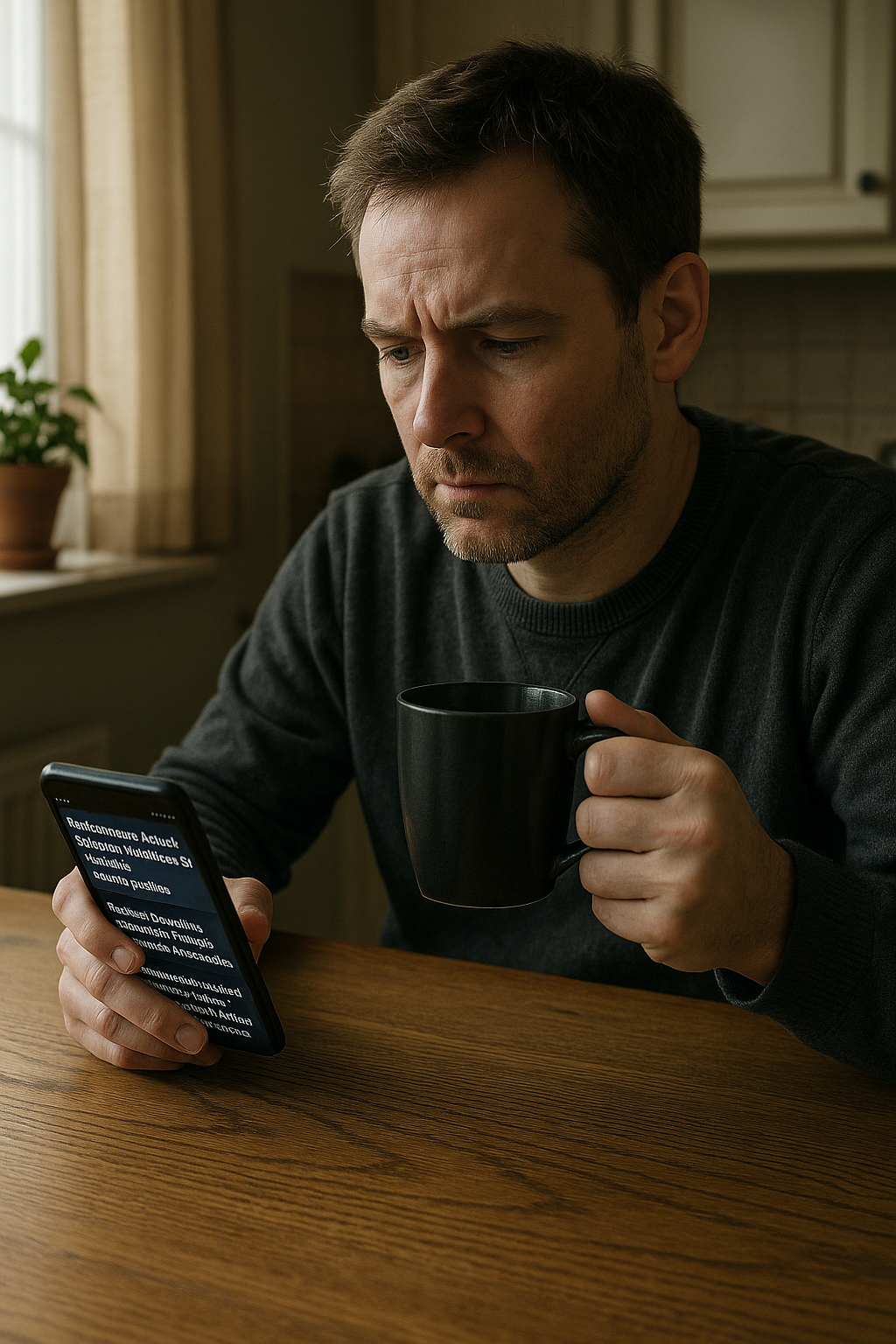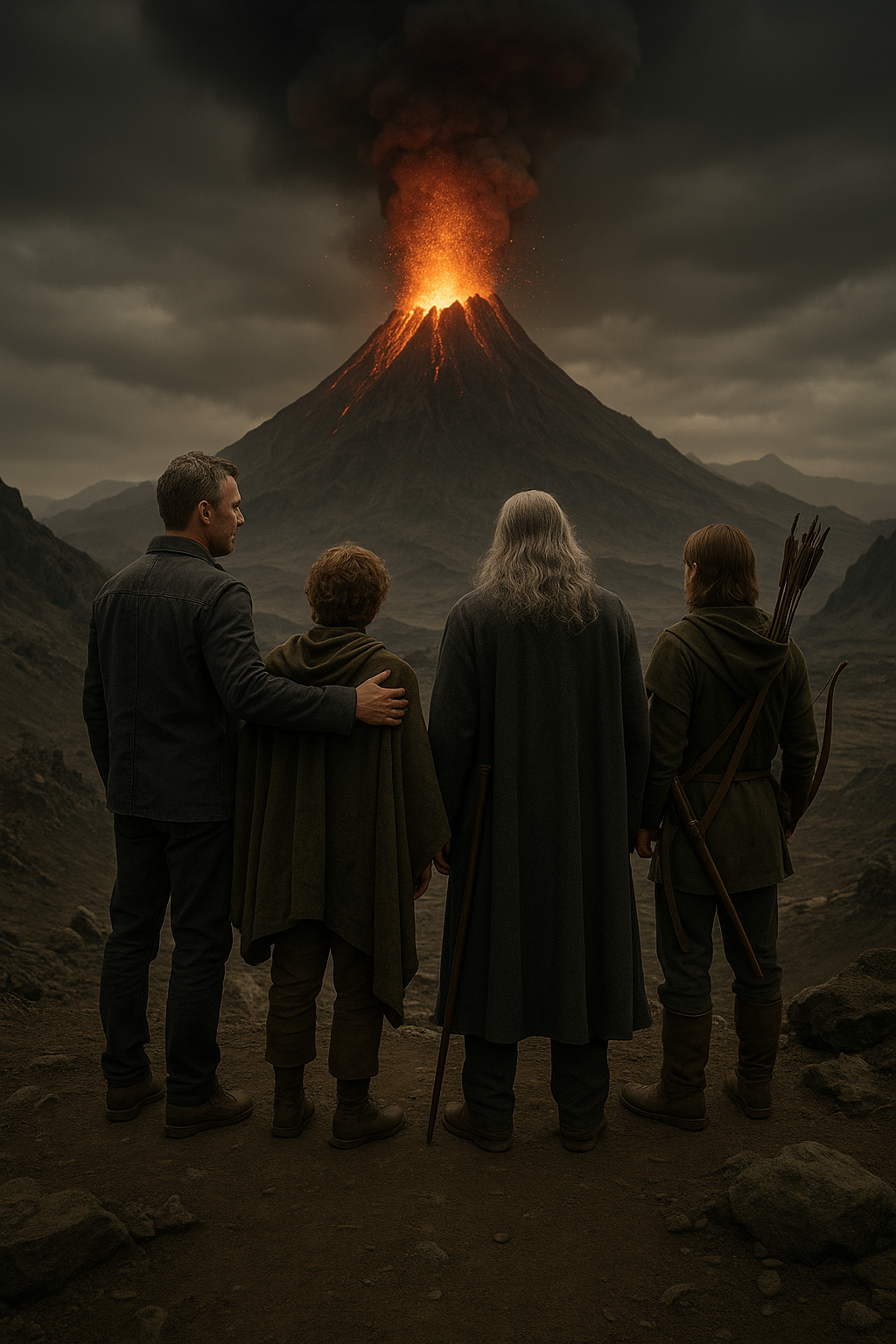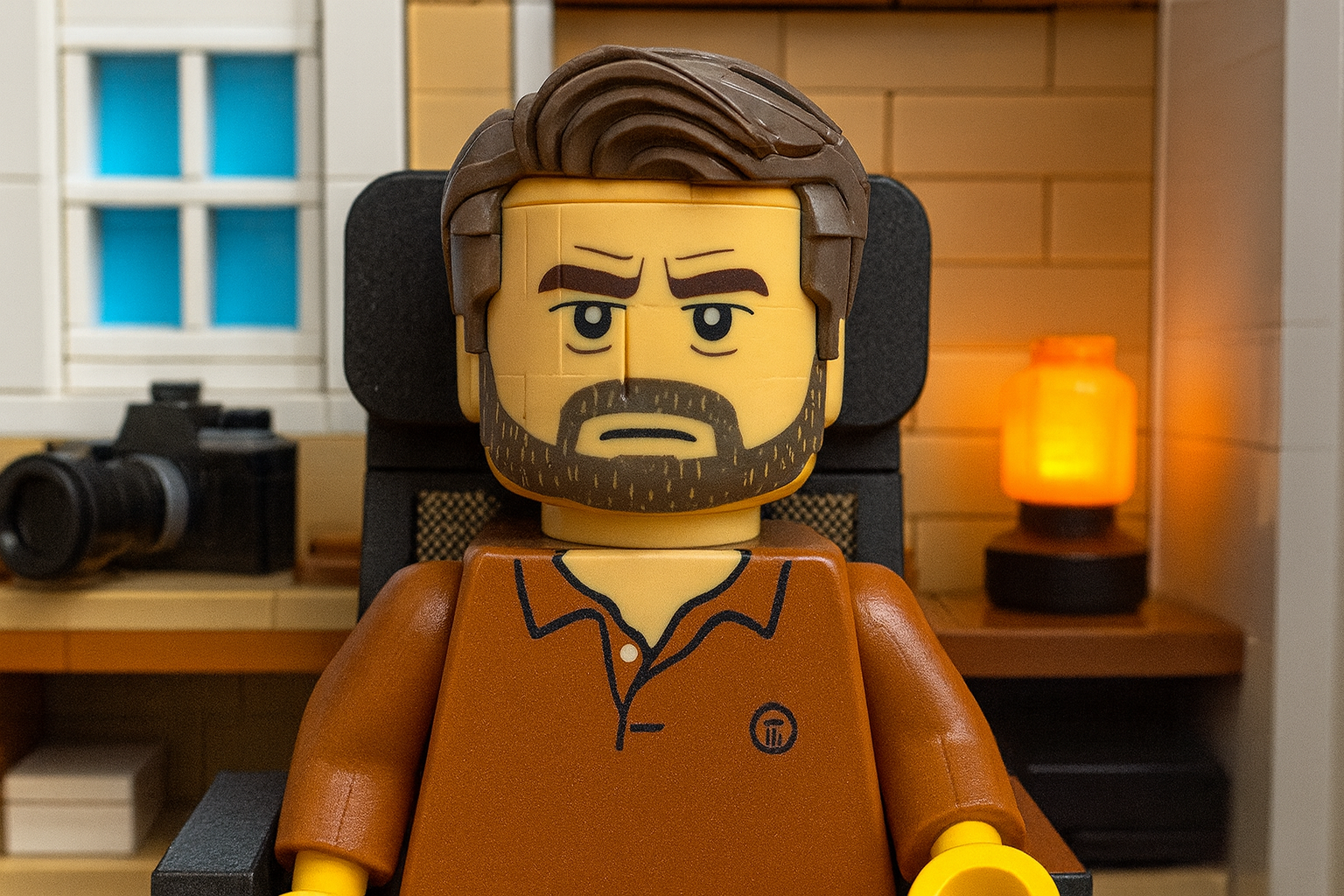The silent war in our safe home¶
There is something unsettling about how normal everything feels right now. I sit at the kitchen table with my morning coffee, scrolling through the news. A ransomware attack on Miljödata cripples hundreds of Swedish municipalities. A Russian deepfake campaign targets Germany’s chancellor. Moldova’s president warns of Russian hybrid warfare before the election. The U.S. steps back from efforts to fight disinformation from China and Iran. And all of it drifts past like weather while I wonder if I should buy milk on the way home from work. Maybe that is the most frightening part. Not that it happens, but how quickly we get used to it.

Sweden still feels like the safest place on earth, though it is a fragile normality. Our institutions keep working, neighbors still greet politely at the mailbox, but nights echo with bombings and headlines tell of gang wars. The calm is real, but it can shatter at any time. Beneath that uneasy surface something else is happening. A war fought not with bullets but with keyboards, not with armies but with algorithms. When Putin lets opposition leaders die in prison, he calls it justice. When Xi locks up millions, he calls it education. When ransomware gangs hold hospitals hostage, they call it business. Words lose their meaning. Truth becomes negotiable. And us? We keep buying milk.
It is not really our fault. We built a society so stable that we barely notice when it comes under attack. Water still flows from the tap even if hackers breach a treatment plant. The grid keeps working even when foreign powers map its weaknesses. Democracy continues even as disinformation spreads through social media like a poisoned river. But this resilience is fragile. It holds until it doesn’t. Every day the attacks become more sophisticated. Gang crime borrows tactics from international networks and uses explosives with precision. Influence campaigns no longer target only elections but the very trust between people. Cybercrime has become so profitable that it draws the same talent that once built Silicon Valley.
Our adversaries understand what we still resist: in a connected world, there are no borders. A ransomware attack launched far away can cripple a Swedish hospital in minutes. A disinformation campaign can split families at the dinner table. A corruption scandal can poison trust in institutions. We build walls at physical borders while the real threats seep in through cables, banks, and social media. They do not arrive as invading armies but as shadows, slipping through networks, spreading not just fear but something worse: hopelessness.
Meanwhile, our own leaders begin to look more like those we say we oppose. Power corrupts in democracies too, just more elegantly. Lobbyists buy influence with dinners instead of briefcases of cash. Politicians say one thing for the cameras and the opposite behind closed doors. Media outlets serve the interests of their wealthy owners. And so we accept a certain level of hypocrisy as how things are, a certain level of corruption as political reality, a certain level of abuse of power as the price of stability. But this acceptance is fragile too. It is the quiet victory of our enemies, who do not need to break us as long as we stop expecting better.
And yet, there is still strength in the Swedish way of seeing the world. We built something that works: a society built on trust, where corruption is rare, where power shifts peacefully between rivals. Proof that people can organize without violence or oppression. But even this strength is fragile. We do not always understand why anyone would choose destruction over building, fear over trust, domination over shared prosperity. Maybe it is time we learned. Not to copy them, but to defend what we built.
Our cybersecurity experts work around the clock, sentinels guarding borders we can barely see. Journalists dig deeper than ever to uncover hidden truths. Civic groups defend democracy as if it were sacred. But it is no longer enough to simply guard what we inherited. Wars are not fought on battlefields anymore but in data centers. Not between armies but between values. And in this war, no one is coming to save us. We must be our own heroes. Ordinary people willing to do extraordinary things to protect what matters. What it takes is not magic or legendary weapons. It is everyday courage. The courage to speak truth when lies dominate. To stand for what is right when it is easier to look away. To keep trusting when everything around us whispers that trust is naive.
It feels like we are living our own version of an old story. Ordinary people in a safe home, shadows gathering outside, forced to decide between comfort and courage, between ignoring danger and facing it. This is our Lord of the Rings, playing out in real time. Cyberwar instead of orcs. Disinformation instead of Nazgûl. Corruption instead of the Ring. Putin as Sauron, his oligarchs as Ringwraiths, his troll factories as orcs. And us? We are the hobbits of our Swedish Shire, comfortable until darkness reached our doorstep. Now we must choose who we want to be. Do we shut the door and pretend nothing is happening, or do we step outside, afraid but willing, knowing that even the smallest can make a difference when the mighty fail?

We have our own rings to destroy: corruption’s networks, disinformation’s power, cybercrime’s grip on our systems. We have our own Mordor to confront: authoritarian regimes that threaten everything we believe in. But we also have our own Fellowship. Our cybersecurity experts are Aragorn. Our journalists are Gandalf. Our activists are Legolas and Gimli. And we, the ordinary citizens, are the potential Frodos, burdened with something we never asked for but must carry anyway. The story reminds us that the world is not saved by the powerful, but by the small, the scared, the ones who only wanted to go home but chose to do the right thing when it mattered most.
So who do we want to be in our story? The ones who shut the door, or the ones who put on their boots? The ones who pretend the danger is not there, or the ones who face it with the only weapon we truly have: hope that the world can be better. We know how this story can end. The small can defeat the great. Light can overcome darkness. Hope can outlast even the darkest times. But only if we are willing to become the heroes of our own fragile but necessary saga.
